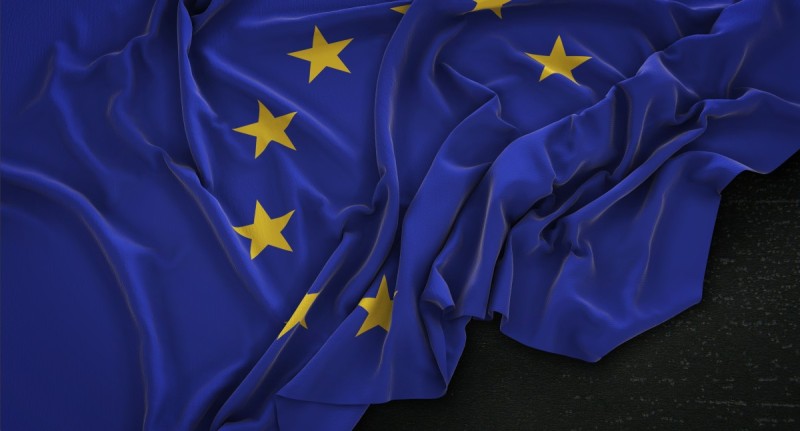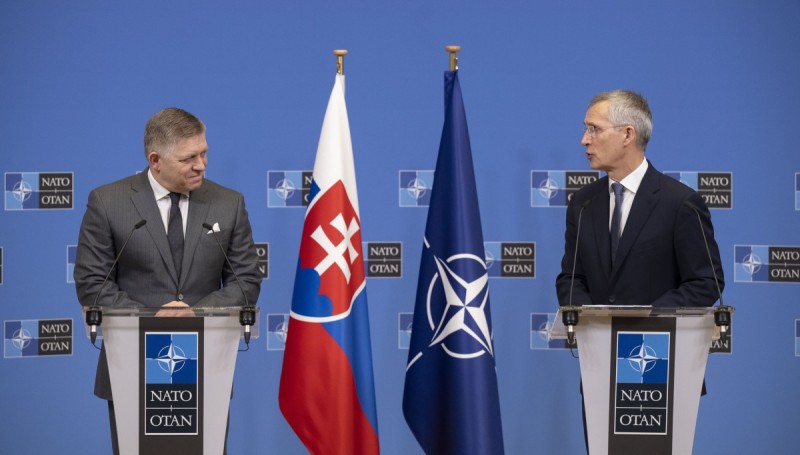In Ukraine war’s shadow, cracks emerging in European consensus
Slovakia and Hungary’s energy spat with Ukraine reflects growing disquiet over mounting costs of a prolonged and unwinnable war

Image by natanaelginting/Freepik
As the election excitement heats up in the United States, increasing concern is visible in some quarters about the likely effect of the election on American support for Ukraine. Pro-Ukrainian commentators are particularly worried that a Trump victory would lead to a complete reversal of US policy. As evidence they point to a plan recently drawn up by two Trump advisors who argued that the American government should cut off aid to Ukraine if it did not start peace negotiations with Russia. Meanwhile, Donald Trump’s vice presidential nominee, J.D. Vance, is known to be uber-hawkish with regard to China, and to believe that the United States should stop supporting the Ukrainians so that it can concentrate on combating the Chinese.
Whether Trump agrees with any of this is not known, but the very fact that such ideas are circulating is adding to the sense of uncertainty. The resultant unease reflects a widely held belief that Ukraine’s fate lies in America’s hands. If the US ceases support, it is felt, others will fall inevitably in line and Ukraine will be deserted. This, though, may not be the case.
For in reality, since the start of Russia’s invasion of Ukraine, European leaders have for the most part been much more hawkish than their American counterparts. This reflects the fact that the war is taking place on their borders. It also reflects the role that opposition to Russia is playing in cementing a sense of cohesion among members of the European Union, for many of whom the war is a defining moment in the European identity building project.
There are, however, two exceptions—Hungary and Slovakia—both of whom have vocally opposed what they perceive as undesirable escalations of the war carried out by their European colleagues. Both have made it clear that they want Ukraine to settle peace terms with Russia, even on terms unfavourable to the former.
Hungary, in particular, has long had a somewhat testy relationship with Ukraine, in part due to disagreements over the rights of Ukraine’s minority Hungarian population. Now, relations have become even worse as Ukraine, Hungary, and Slovakia engage in a tit-for-tat economic conflict over energy.
Despite the war, Russian oil has continued to flow through Ukrainian pipelines into the European Union, including to Hungary and Slovakia. Last month, however, the Ukrainian government announced that it would partially block the transit of oil, specifically targeting the Hungarians and Slovakians. Hungary, in particular, has until now relied on Russia for about 70 percent of its oil. A Ukrainian government spokesman made the political nature of the block on oil exports clear, saying that the aim was to overturn Hungary’s opposition to weapons deliveries to Ukraine. “We have really tried all the diplomatic solutions, and they never worked,” she said, “So it seems like we have to find some other approaches in how to talk to them.”
Joint press conference between NATO Secretary General Jens Stoltenberg, left, and Slovakian Prime Minister Robert Fico, December 14, 2023. Photo courtesy of NATO/Flickr.
The Ukrainians may, however, have shot themselves in the foot. Over the past few months, the Russians have destroyed a significant percentage of Ukraine’s electrical production capacity. In response, Ukraine has greatly increased its imports of electricity from the EU, including from Hungary and Slovakia. Now, therefore, the Hungarians and Slovakians are threatening to stop supplying electricity unless Ukraine reverses its oil embargo. “If the situation is not corrected, we will be forced to act,” declared Slovak President Peter Pellegrini. Meanwhile, Hungarian Foreign Minister Peter Szijjarto threatened to block the transfer to Ukraine of €6.5 billion from the European Peace Fund unless the Ukrainians backed down.
All this might suggest that European unity is crumbling and that the common front against Russia is falling apart. This would be a false conclusion. Hungary and Slovakia are very much outliers. Elsewhere in Europe, political leaders remain utterly committed to the Ukrainian cause, and perhaps rather oblivious to the military realities, continuing to talk of supporting Ukraine for “as long as it takes,” in the words of new British Prime Minister Keir Starmer a week ago.
No other European states support Hungary and Slovakia in their energy dispute with Ukraine, despite the formers’ claim that Ukraine is acting in breach of its EU association agreement. The EU commission, meanwhile, is stalling issuing a judgement on the issue, perhaps in order to work out a plausible argument for why Ukraine should be allowed to impose economic sanctions against EU members without punishment.
On top of this, EU foreign policy chief Josep Borrell, along with the foreign ministers of EU member states, have agreed not to attend an informal meeting of foreign ministers that was due to be hosted by Hungary in its role as the current incumbent of the EU’s rotating presidency. Instead, they will hold a separate meeting of their own. The immediate cause of this somewhat petulant venture was Hungarian Prime Minister Viktor Orban’s recent trip to Moscow to visit Russian President Vladimir Putin. In this way, EU leaders have made it clear that they reject any talk of peace in Ukraine. Even the mere suggestion of peace negotiations is anathema.
The problem, however, is that European leaders don’t have any obvious plan for ending the war that doesn’t involve negotiations. It would appear that they still cling to images of some decisive Ukrainian victory. But this is increasingly implausible. Speaking to the Guardian this week, the head of the Ukrainian military, General Oleksandr Syrskyi, noted that the Russian army in Ukraine had more than doubled since 2022 and was growing even more, and that it had ever more tanks, artillery pieces, and other weapons at its disposal. Given this, it is very hard to imagine how Ukraine could possibly achieve its political objective of recapturing its lost territories by solely military means. Indeed, negotiations will at some point have to take place. Attacking the Hungarians and Slovaks for recognizing that reality does not therefore seem desperately productive.
All this suggests that even if Donald Trump does win the presidential election in the United States and the US does then drop its support for Ukraine, European countries may not follow suit. Based on their reaction to Hungary and Slovakia, it seems that most of them will try to plough on regardless. Ukraine’s supporters might rejoice at this conclusion, but European support alone can offer Ukraine little else than continued bloody conflict with no hope of an even semi-reasonable outcome. Events these past weeks thus leave nobody with any much reason for optimism.
Paul Robinson is a professor in the Graduate School of Public and International Affairs at the University of Ottawa and a Senior Fellow at the Institute for Peace and Diplomacy. He is the author of numerous works on Russian and Soviet history, including Russian Conservatism, published by Northern Illinois University Press in 2019.






_600_400_90_s_c1.jpg)



_600_400_90_s_c1.jpg)